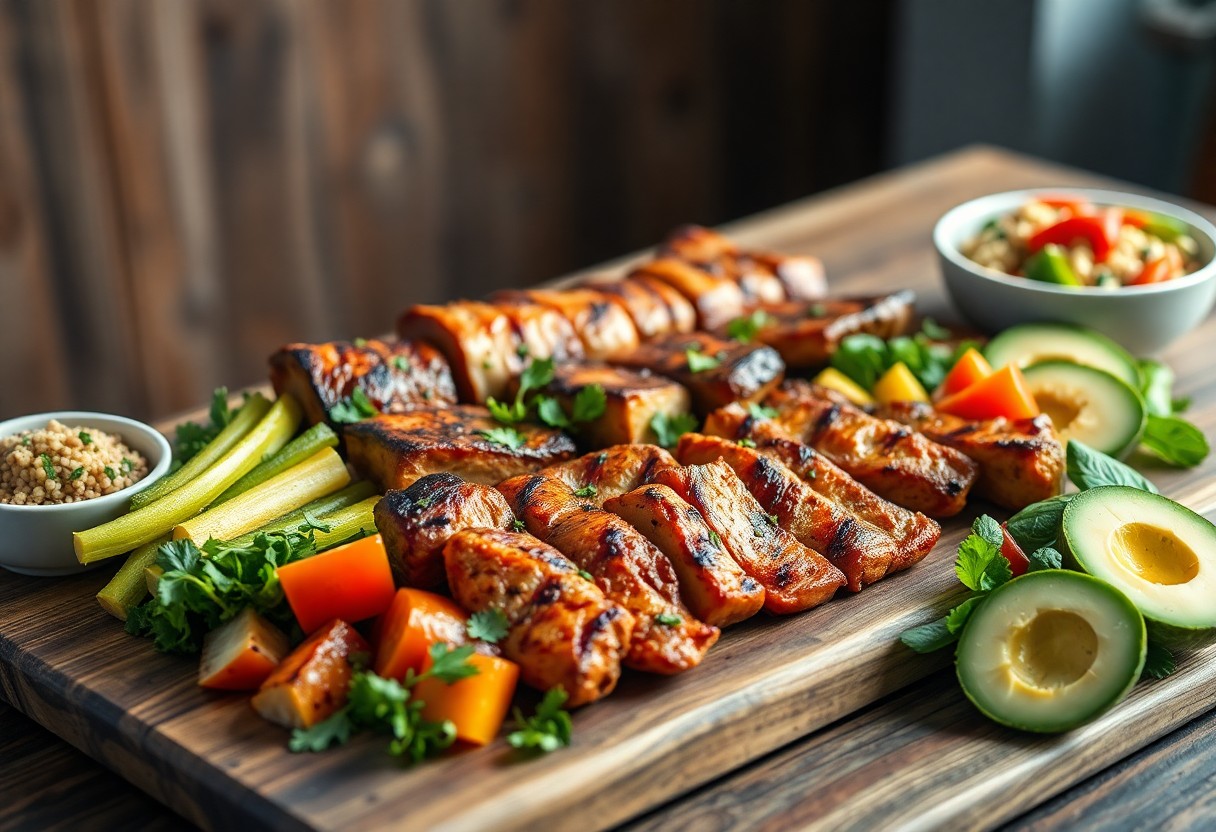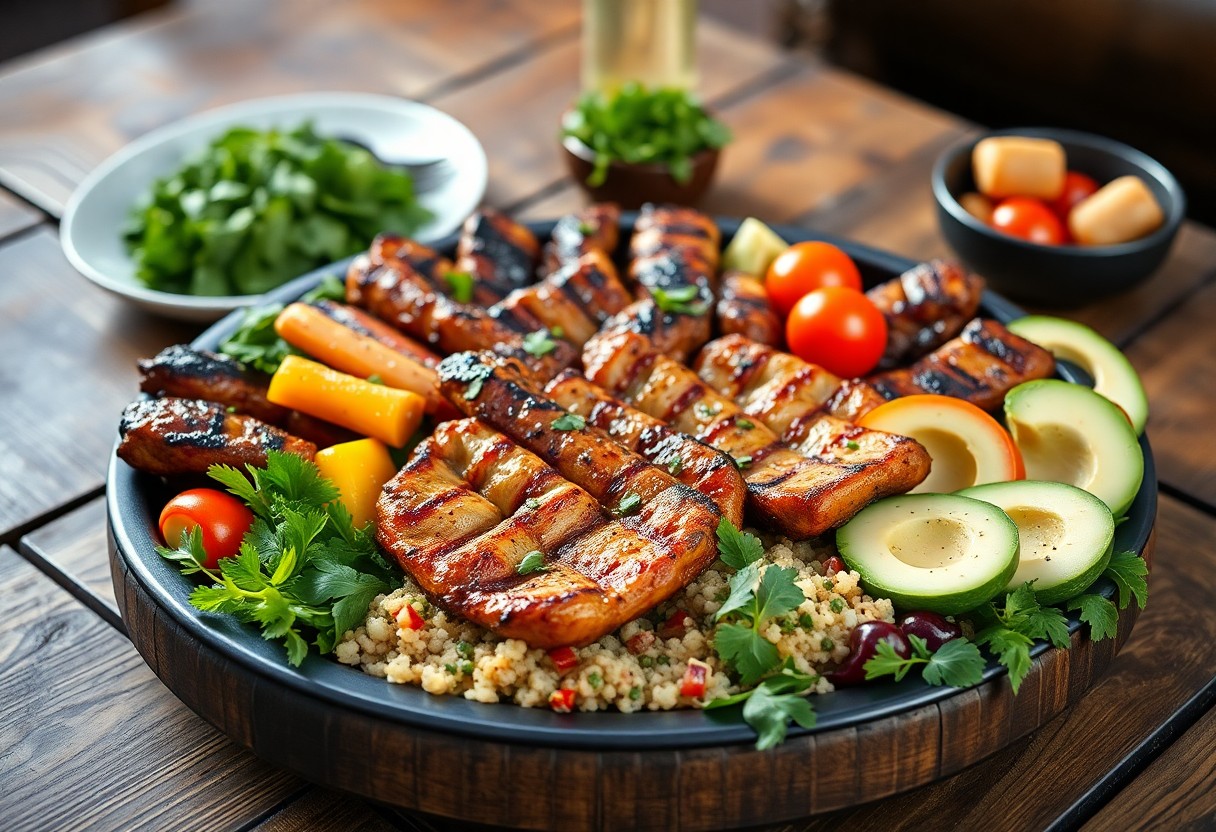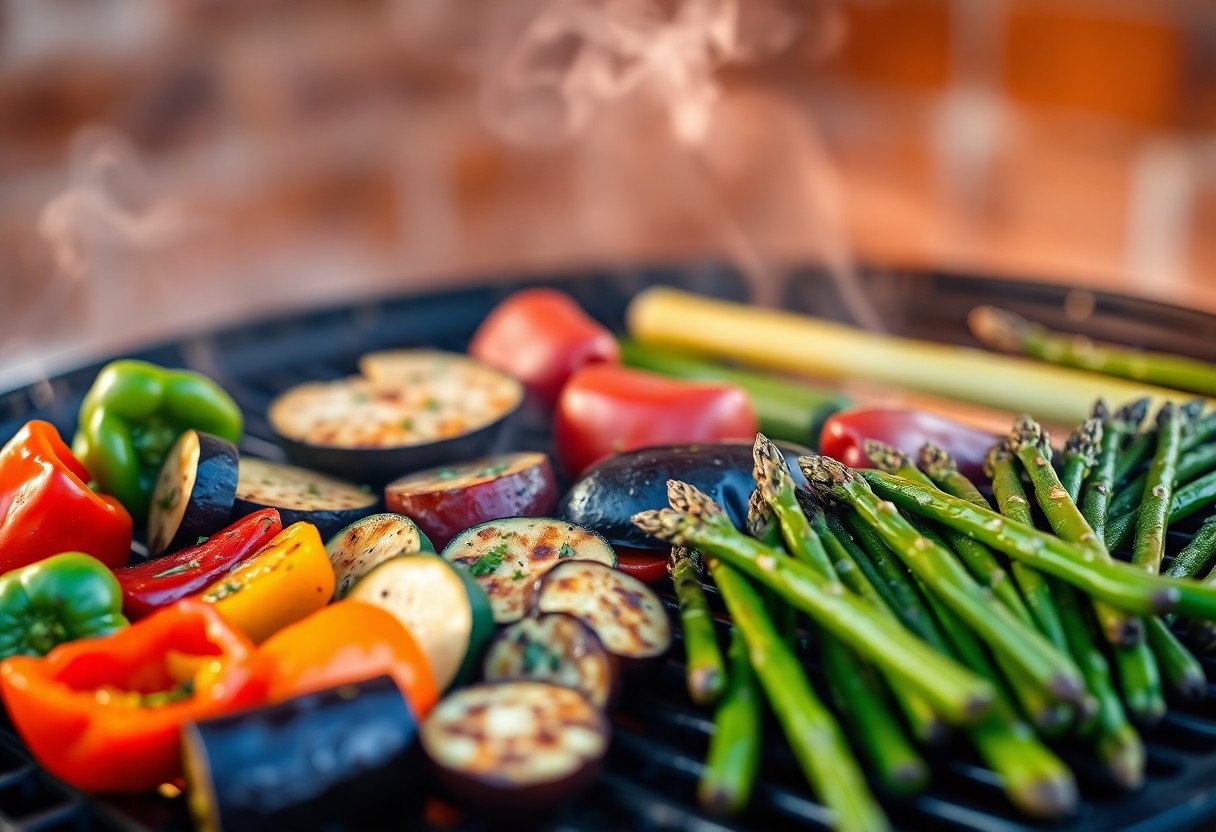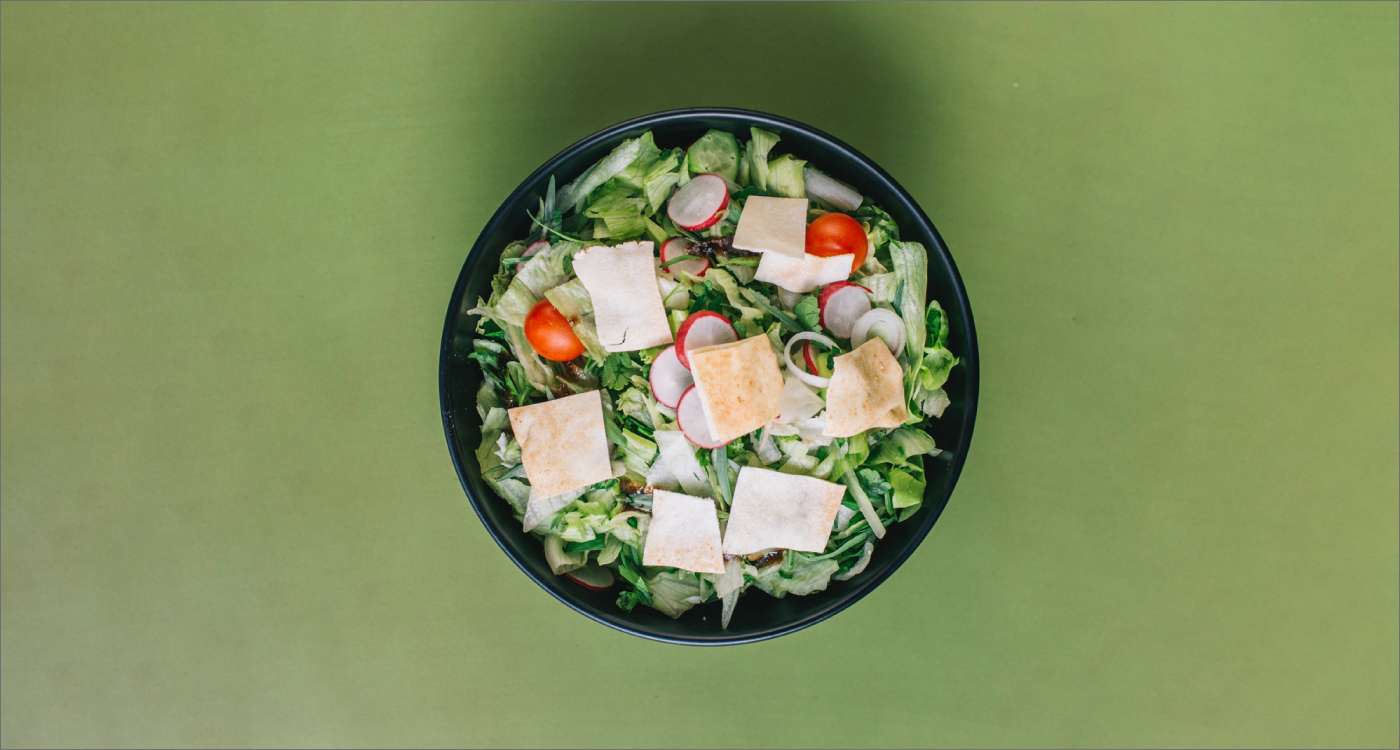Most backyard barbecues focus on flavor, but I believe we can also prioritize nutritional value without sacrificing taste. You can easily incorporate wholesome ingredients that enhance your dishes while boosting health benefits. By choosing lean proteins, colorful vegetables, and flavor-packed marinades, you can turn your barbecue into a feast that nourishes your body. In this post, I will share practical tips and delicious ideas to elevate your barbecue game, ensuring it’s both a culinary delight and a healthy option for you and your guests.

Key Takeaways:
- Incorporate a variety of vegetables like peppers, onions, and zucchini to add flavor, color, and nutrients.
- Opt for lean proteins such as chicken, turkey, or fish to create healthier barbecue options.
- Experiment with marinades made from herbs, spices, and healthy fats like olive oil for added depth without excessive calories.
- Use whole grain or alternative buns, such as lettuce wraps, to accompany grilled items, enhancing fiber content.
- Serve with nutritious sides like quinoa salad, grilled fruit, or a mixed greens salad to balance the meal.
Understanding Nutritional Value
Before plunging into the world of barbecue, it’s vital to grasp the nutritional value of the ingredients you are using. Every ingredient carries its unique profile of vitamins, minerals, and macronutrients, which contribute not just to the taste but also to the health benefits of your meal. By understanding these values, you can make informed choices that elevate your barbecue not just in flavor but in overall nutritional quality.
Importance of Nutrient-Dense Ingredients
Before I launch on creating my barbecue masterpiece, I prioritize nutrient-dense ingredients. These foods are packed with vital vitamins, minerals, and antioxidants that provide substantial health benefits while enhancing the overall flavor of my dishes.
Balancing Flavors and Nutrients
Across my culinary journey, I’ve discovered that balancing flavors and nutrients is an art form. It’s about incorporating a variety of ingredients that not only taste great together but also deliver significant health benefits.
The harmony between flavors and nutrition can significantly impact your barbecue experience. The key is to integrate vibrant vegetables, healthy fats, and lean proteins that enhance taste without compromising your health goals. For example, adding fresh herbs can infuse intense flavor while providing antioxidants, and opting for whole grains can boost fiber content as well. In this way, I create a bowl of delicious barbecue that not only satisfies the palate but also supports your well-being. When you strike this balance, your barbecue becomes a wholesome celebration of taste and health.
High-Quality Proteins for Barbecue
Now, incorporating high-quality proteins into your barbecue can significantly enhance its nutritional profile. I believe opting for lean and nutritious proteins not only satisfies your taste cravings but also supports your overall health. It’s all about choosing ingredients that provide the flavors you love while being mindful of your well-being. Elevating your barbecue with these protein options can make a noticeable difference in your meals.
Lean Meats and Their Benefits
Proteins from lean meats such as turkey, chicken breast, and pork tenderloin are excellent choices for barbecue enthusiasts. They contain less saturated fat compared to their fatty counterparts, helping you maintain a healthier lifestyle. These meats provide imperative amino acids that contribute to muscle repair and overall body function, making your barbecue both delicious and wholesome.
Plant-Based Proteins as Alternatives
Proteins from plant-based sources, such as legumes, tofu, and tempeh, offer great alternatives for those seeking variety in their barbecue. Incorporating these options not only caters to a wider audience but also adds a burst of flavors and textures to your dishes.
Further exploring plant-based proteins, you’ll find they can serve as hearty substitutes that pack a punch in nutrition. Legumes, for instance, are rich in fiber, aiding digestion and promoting satiety. Firm tofu and tempeh are versatile bases that can absorb marinades, allowing you to infuse rich flavors into your barbecue spread. Additionally, these plant-based proteins are generally lower in fat and can greatly reduce the environmental impact of your grilling, making your summer gatherings not only delicious but also more sustainable.
Incorporating Vegetables into Barbecue
Once again, elevating your barbecue’s flavor and healthiness can be achieved through the incorporation of vibrant, fresh vegetables. By adding grilled vegetables such as bell peppers, zucchini, and asparagus, you create a colorful plate that not only captivates the eyes but also enhances the nutritional profile of your meal. Embracing seasonal produce allows you to enjoy the peak flavor and nutritional benefits, ensuring your barbecue is both delicious and wholesome.
Grilling Techniques for Vegetables
Vegetables can be transformed on the grill through various techniques. I favor marinating them prior to grilling to boost flavor while creating an appealing char during the cooking process. Utilizing skewers or a grill basket ensures even cooking and prevents small pieces from falling through the grates. Keep an eye on the cooking time, as vegetables typically require less time compared to meats, allowing you to achieve that perfect tender-crisp texture.
Nutritional Advantages of Grilled Vegetables
Against the backdrop of traditional barbecue, grilled vegetables offer significant health benefits. They are low in calories while providing a range of necessary vitamins, minerals, and antioxidants. I find that grilling vegetables may enhance their flavor while simultaneously increasing their nutrient bioavailability, allowing your body to absorb more of their goodness. Additionally, incorporating fiber-rich vegetables into your meal promotes digestive health and keeps you feeling satisfied.
Vegetables grilled to perfection not only enhance your barbecue experience but also deliver an impressive array of health benefits. The grilling process can boost the flavor of vegetables without the need for excessive fats or additives, making them a smart choice for health-conscious grilling. Rich in dietary fiber, vitamins A, C, and K, and necessary minerals, they help support digestive health and encourage overall wellness. Including them in your barbecue helps strike a balance between indulgence and nutritious eating, allowing you and your guests to enjoy delicious food without compromising health.
Flavorful Marinades and Rubs
Despite common beliefs, elevating your barbecue experience with flavorful marinades and rubs doesn’t mean sacrificing nutrition. By incorporating vibrant herbs, spices, and natural ingredients, you can create a mouthwatering masterpiece that enhances the taste of your grilled dishes while maintaining a healthy profile. Think of marinades as a chance to infuse your proteins and veggies with layers of flavor, all while avoiding unhealthy additives.
Healthier Ingredients for Marinades
For your marinades, consider using wholesome components like fresh herbs, citrus juices, and vinegars. These ingredients not only enhance flavor but also provide imperative nutrients. You can explore options like garlic, ginger, or even Greek yogurt for their beneficial properties. By replacing processed sauces with these natural ingredients, I find that the dishes not only taste better but offer more health benefits too.
Creating Flavor Without Excess Sodium
Without a doubt, many store-bought marinades are laden with high amounts of sodium, which can be detrimental to your health. Instead, I recommend experimenting with ingredients that pack a flavorful punch, like smoked paprika, black pepper, and herbs, to keep sodium levels low while still delivering a delectable taste. You can achieve amazing flavor through herbal infusions and spice blends, enabling you to enjoy your barbecue without compromising on flavor.
Further, to ensure you are not overly reliant on salt, consider incorporating umami-rich ingredients like mushrooms or nutritional yeast. These components can significantly enhance the taste profile of your marinades and rubs, adding depth without the need for more salt. By combining acidic elements like citrus juice or vinegar with spices, you can craft robust flavors that will have your guests asking for seconds while maintaining a healthy diet.
Creative Sides to Enhance Barbecue
All meals can benefit from the addition of creative sides that not only complement your barbecue but also elevate its nutritional profile. By incorporating a variety of flavors, textures, and colors, you can transform your grilled dishes into a wholesome feast. Choosing fresh, nutritious sides helps in balancing the indulgence of barbecue favorites, making your meal more enjoyable and guilt-free.
Whole Grains and Legumes
Between quinoa salads and hearty bean mixes, incorporating whole grains and legumes into your barbecue spread is an effective way to boost fiber and protein content. They provide a satisfying, nutty flavor while ensuring you stay full and energized. These ingredients enhance the overall nutritional value of your meal, making them a smart choice for any barbecue gathering.
Fresh Salads and Their Nutritional Boost
Legumes play an amazing role in fresh salads, lending not just texture but also a wealth of nutrients to your plate. By tossing chickpeas, black beans, or lentils into your salad, you add a significant source of plant-based protein, fiber, and antioxidants, enhancing the salad’s overall health benefits. Pair them with a variety of colorful vegetables and a light dressing, and you create a refreshing side that not only complements grilled meats but also adds vitality to your meal. This combination empowers you to enjoy the flavors of summer while making smart dietary choices.
Mindful Portion Control
After incorporating nutritious ingredients into your barbecue, it’s imperative to practice mindful portion control. By being aware of how much you serve yourself, you can enjoy the rich flavors of your meal while still maintaining a balanced diet. This approach not only helps in managing weight but also ensures that you are savoring every component of your barbecue experience without overindulgence.
Understanding Serving Sizes
Along with being mindful of ingredients, understanding serving sizes is vital for healthy eating. I encourage you to familiarize yourself with standard serving sizes for proteins, vegetables, and carbohydrates. This knowledge allows you to create satisfying meals that nourish your body while preventing excess calorie intake.
Balancing Your Plate for Healthier Eating
Against the notion that barbecues must be indulgent, I believe in creating a well-balanced plate. A good strategy is to fill half your plate with colorful vegetables, one quarter with lean proteins, and the remaining quarter with whole grains or healthy starches. This method not only enhances flavor but also ensures your meal is rich in vitamins and minerals.
Serving a balanced plate is about harmonizing nutrient-dense ingredients in a way that supports your health goals. When I combine grilled vegetables with a protein like chicken or tofu, along with a side of quinoa or brown rice, I find myself feeling more satisfied. This approach helps to minimize unhealthy cravings and promotes a sense of fullness while providing my body with imperative nutrients. Ultimately, I feel good knowing I’m making choices that benefit both my palate and my health.
Conclusion
The key to elevating barbecue with nutritious ingredients lies in your selection and preparation. I encourage you to explore options like lean meats, vibrant vegetables, and wholesome marinades, which can transform traditional dishes into healthy meals without sacrificing flavor. By experimenting with spices and incorporating fresh produce, you not only enhance the taste but also boost the nutritional value of your barbecue. Embrace these changes, and you’ll find that grilling can be both delicious and beneficial for your health.
FAQ
Q: How can adding vegetables enhance the nutritional value of barbecue dishes?
A: Incorporating a variety of colorful vegetables into barbecue dishes can significantly boost their nutritional profile. Grilled vegetables such as bell peppers, zucchini, eggplant, and asparagus can provide important vitamins, minerals, and antioxidants. Roasting these vegetables enhances their flavors, making them a delicious accompaniment to meats, or they can be served as skewers. Additionally, vegetables offer dietary fiber, which supports digestive health.
Q: What are some healthy marinades that can improve the nutritional aspects of barbecued foods?
A: Healthy marinades can provide flavor while adding beneficial nutrients. Consider using yogurt-based marinades, which can include herbs and spices for flavor and offer probiotics that are good for gut health. Another option is using citrus juices (like lemon or lime) mixed with olive oil and fresh herbs, which provide vitamin C and healthy fats. These marinades can tenderize meat and infuse it with flavors, enhancing both taste and nutritional value.
Q: How can whole grains be incorporated into a barbecue meal?
A: Whole grains can be included in barbecue spreads by offering sides like quinoa salad, brown rice pilaf, or whole-grain bread for sandwiches. These options add fiber, B vitamins, and protein to the meal. Additionally, preparing grain salads with diced vegetables and a healthy dressing can create a satisfying and nutritious accompaniment to barbecued meats, enhancing your meal with sustained energy and health benefits.
Q: Are there alternatives to traditional barbecue sauces that can make meals healthier?
A: Yes, there are many healthier alternatives to traditional barbecue sauces high in sugar and sodium. You can prepare homemade sauces using ingredients like tomato paste, vinegar, and spices, which allow you to control the amount of sugar and salt added. Additionally, using fruit-based sauces, such as mango or pineapple salsa, can provide natural sweetness along with vitamins and fiber. These alternatives enhance the flavor of the meal without compromising health.
Q: What role do herbs and spices play in elevating barbecue nutrition?
A: Using a variety of herbs and spices in your barbecue not only adds depth of flavor but also has numerous health benefits. Many herbs and spices, such as garlic, cumin, paprika, and rosemary, are rich in antioxidants and anti-inflammatory properties. They can potentially lower the risk of chronic diseases while boosting the overall taste of the dish. Including these flavorful ingredients can elevate the nutritional value of your barbecue without adding extra calories or unhealthy fats.














